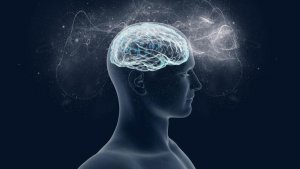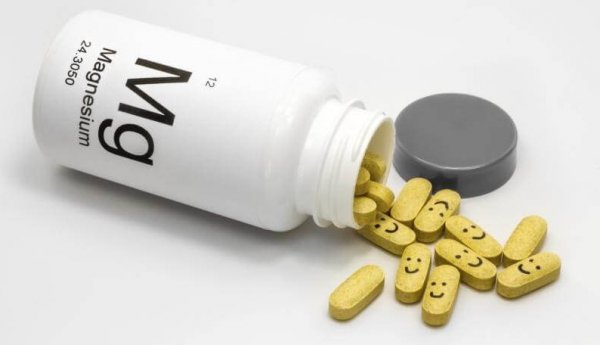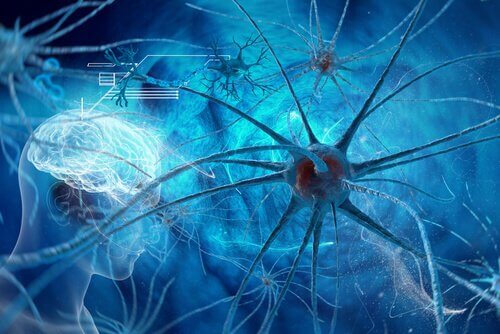Magnesium: Your Brain Loves it


Written and verified by the psychologist Sergio De Dios González
Magnesium is an essential nutrient that we usually don’t get enough of in today’s world. This mineral has more than 600 metabolic functions and acts as a major brain protector. In fact, it’s so good for chronic stress and anxiety that a lot of scientists now call it “nature’s valium.”
Magnesium is no miracle cure, we should make that clear right from the start. Taking supplements won’t fix an anxiety disorder overnight. It won’t put an end to our insomnia or triple our intelligence.
A chronic magnesium deficiency can give rise to neurological disorders like hyperactivity, apathy, and even psychosis.
There’s a very simple reason for this. In Western diets there’s a huge deficit of this mineral. So much so that it is estimated that close to 70% of us have low levels of magnesium in our bodies.
The problem is that a lot of the foods we eat they lack this essential nutrient. Why? Because it’s not present in the soil they grow in. Nowadays people fertilize with phosphorous, nitrogen, and potassium…
For example, this doesn’t happen in countries like Japan. Their soil is rich in magnesium, and so Japanese people ingest 700 milligrams on average. This then affects life expectancy, lower rates of dementia, better bone health, etc.
Of course, there are a lot of factors. But research on magnesium therapy is extensive and very promising. In fact, a lot of articles published in Nature magazine attest to the benefits this nutrient has for our psychological health.
Let’s dig a bit deeper…

What magnesium does
Magnesium is getting popular. We see it every day in drug stores and even the supermarket. We’ve heard so much talk about how good it is that we might even say there’s a real “cult” around this nutrient. But…how much truth is there to all that?
First we should stress once again that its benefits are based on one very concrete fact. Modern diets and current crops are deficient in magnesium because of industrial farming and artificial fertilizers. Simple as that.
The most interesting thing of all is that as our reserves of this mineral go down, the first thing we’ll notice is a higher sensitivity to stress and anxiety.
But…what’s so special about magnesium? Why is it so important for our health?
- Magnesium is present in a lot of our biochemical reactions.
- It plays a role in cell transportation and helps cells create aerobic energy.
- A lot of magnesium accumulates in the periosteum of our bones.
- It fosters protein formation.
- Also, this macromineral is essential for nerve stimulation and muscle contraction, including the heart’s.
Magnesium is necessary for over 600 metabolic functions. But in the last 50 years it has earned a place in the top 3 nutrient deficiencies, along with iron and vitamin D.

Magnesium and anxiety disorders
Clinical and laboratory evidence proves that a serious, chronic magnesium deficiency leads to numerous neurological problems. Some of these are hyperexcitability, seizures, and psychiatric symptoms that range from apathy to psychosis.
It’s definitely a serious topic but at the same time there’s hope. Because for a lot of people all it takes is magnesium supplements.
Neuroscientist Gusong Liu, from Beijing’s Tsinghua University, is one of the biggest experts in the study of the relationship between magnesium and our cognitive and emotional health. His research is absolutely captivating and very enlightening. Up next we’ll look at some of his findings.
Magnesium is a natural relaxant
One of the things they’ve discovered is that magnesium reduces stress and anxiety by stimulating our brain’s GABA receptors.
- We should remember that GABA (Gamma-Amino Butyric acid) is a neurotransmitter that acts as a relaxant for brain activity. If this compound isn’t working well, the brain becomes suspended in constant “hyperactivity.”
- When GABA doesn’t act like it’s supposed to, we worry more, we have obsessive thoughts, we wake up suddenly in the middle of the night with our heart racing. Bit by bit, we fall into the downward spiral of anxiety…They’re exhausting processes that magnesium can regulate.

Magnesium reduces the amount of cortisol in our blood
This is definitely a very interesting fact. Magnesium limits the release of stress hormones, like cortisol, for example, and also acts as a neuroprotector by preventing it from reaching our brain.
As we know, cortisol is one of the most dangerous triggers of anxiety. For example, it’s what provokes that classic mental fog. It keeps us from being able to focus, reason clearly, react quickly, and have an agile memory.
Magnesium improves our mood
We already know something as basic as having adequate levels of magnesium in our body will foster basic processes like muscular relaxation and nervous system balance. Also, one very positive aspect is its impact when it comes to producing proper levels of serotonin.
Serotonin, as we’ve explained in other articles, is a hormone that also works as a neurotransmitter that regulates our mood. A low level is associated with depression. But if we maintain good serotonin production, we’ll have more energy and be more optimistic. And magnesium can help us with that.
How do I know if I should take magnesium supplements?
After all that, you may be ready to head to the pharmacy right now and stockpile magnesium. But let’s not rush into anything. It’s good to keep in mind that magnesium isn’t appropriate for everybody. It might not be advisable if you have kidney problems, for example.
That’s why the best thing to do is always to talk to your doctor. He will help you evaluate whether you should take magnesium supplements, what kind, and how much.
If you have anxiety, stress, insomnia, or any kind of depression, magnesium can really help. But it’s always a good idea to talk to a doctor first.

It’s also always an excellent idea to improve our diet. Buying organic is best, because it ensures the soil contains magnesium. We don’t want pesticides or anything else that will reduce magnesium levels in the fruit or vegetable. Here are some examples of foods rich in magnesium that we should eat more often:
- Avocados.
- Salmon.
- Pumpkin, sesame, and sunflower seeds.
- Unsweetened dark chocolate.
- Parsley.
- Mustard seeds.
- Almonds, chestnuts, and walnuts.
- Wheat bran.
- Spinach.
- Lentils and chick peas.
- Shellfish
- Raisins and prunes.
- Peas.
Wrapping up, even though today’s world, with all the pressure and busyness, definitely contributes to anxiety or stress, nutrient deficiencies really matter. So let’s take a little bit better care of ourselves.
This text is provided for informational purposes only and does not replace consultation with a professional. If in doubt, consult your specialist.








